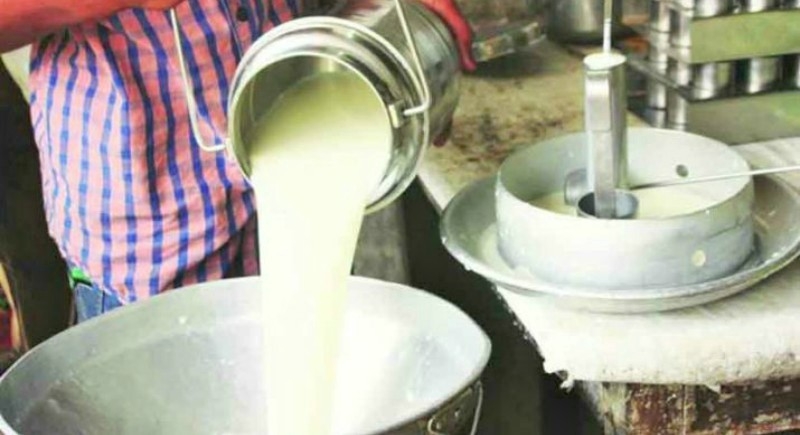#MilkAgitation called off! Supporting farmers, Maha Govt hikes milk price to Rs. 25/- per liter
Nagpur, July 20: Pacifying the ongoing milk agitation in the state of Maharashtra, the state government has decided to increase the price of milk supporting milk farmers. Maharashtra’s dairy farmers called off their four-day-long strike on Thursday night after the state government directed the milk cooperatives and private milk producer Sangh to increase the price to Rs 25/- per liter. The decision will come into effect on July 21.

The ministerial meeting in Nagpur chaired by Chief Minister Devendra Fadnavis took the decision on milk rate issue with various private and coop milk producers to give more price to farmers. Assembly Speaker Haribhau Bagde, Ministers Subhash Deshmukh, Mahadev Jankar, Sadabhau Khot, Eknath Shinde, Diwakar Raote were present.
In the meeting CM Devendra Fadnavis and Union Minister Nitin Gadkari shared some of the decisions taken by GoI for increasing milk consumption. The decision encounters a lead of 40% import duty on milk powder, increase in export incentive and Rs 300 crore on working capital to State Cooperative Federation.
The four day long milk agitation by Maharashtra’s diary farmers was called off after the decision of the Chief Minister. Shetkari Swabhimani Sangathana (SSS) leader Raju Shetti, who led the strike, welcomed the decision of CM Devendra Fadnavis stating that they wanted the farmers to get more price for the mik production and they have achieved their goals.
The agitation had created a milk shortage across Mumbai on Thursday. The milk supplied from Amul fell short in Parel, Mulund, Khandeshwar near Panvel. The State government will provide Rs 5 subsidy to the milk co-operatives, which will have to be passed on to the farmers. The State government will have to bear Rs.75 crore as additional expenditure per month because of this decision.
The State government’s proposal to provide a subsidy of Rs. 2-3 per litre will benefit dairies and other stakeholders in the sector, but there are no guarantees that the subsidy will get passed on to the farmers.